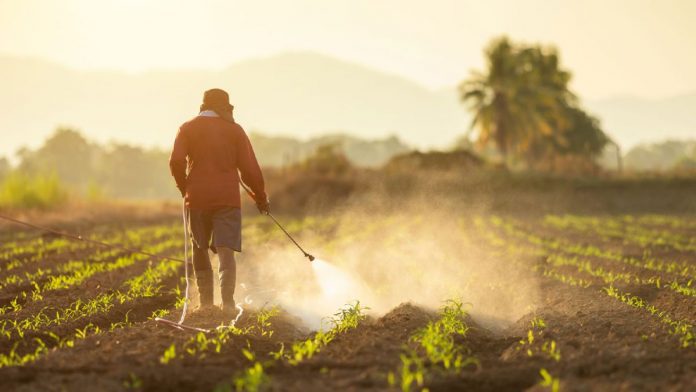News in Brief:
– Africa’s growing population and climate pressures are driving a rise in food insecurity, pushing farmers towards using more fertilisers and pesticides.
– This demand, coupled with government initiatives and low current usage, is expected to fuel a 4.6% annual growth in the African agrochemical market, reaching $9.21 billion by 2028.
The African agrochemical market is expected to witness significant growth in the coming years, driven by rising food security concerns and increased demand for fertilisers.
A report forecasts that the market will expand from $7.36 billion in 2023 to $9.21 billion by 2028, representing a compound annual growth rate (CAGR) of 4.60%.
A key driver of growth is the increasing use of pesticides in African regions experiencing drought. One publication by the United Nations Framework Convention on Climate Change (UNFCCC) argued that climate change is causing increased pest damage, among other risks to food production.
Thus, as climate variability threatens crop production, farmers resort to pesticides to combat pests and ensure stable yields. Government initiatives further contribute to this trend, with several countries, including Nigeria and Angola prioritising agriculture in their development plans to stimulate economic diversification and reduce reliance on food imports.
Food production races to meet Africa’s booming population, driving dependence on agrochemicals
The continent’s rapid urbanisation and booming population growth are also putting immense pressure on the continent’s food production systems. With smallholder farmers accounting for 80% of the food supply, the gap between consumption and local production is widening.
However, international and regional initiatives like the G8’s New Alliance for Food Security and Nutrition in Africa aim to address these challenges, creating opportunities for growth in the agrochemicals sector.
Nigeria’s government, led by Tinubu, has been ramping up production efforts including directly subsidising inputs, as lower usage has been identified as a cause of reduced production.
The need for increased agricultural productivity due to the surging population necessitates robust fertiliser usage. Despite fluctuations in land dedicated to farming, the emphasis on high-yield crops reinforces the importance of fertilisers in African agriculture. Nitrogen fertilisers (NPK), in particular, dominate the continent’s landscape, leading to significant investments and expansions in fertiliser production facilities.
Despite this surge, it is important to note that fertiliser consumption in Africa still lags behind global averages, indicating further potential for market growth. In 2020, the African Development Bank (AfDB) pegged the average application per hectare of cultivated land in sub-Saharan Africa at 17 kg, which is much lower than the global average of 135 kg



